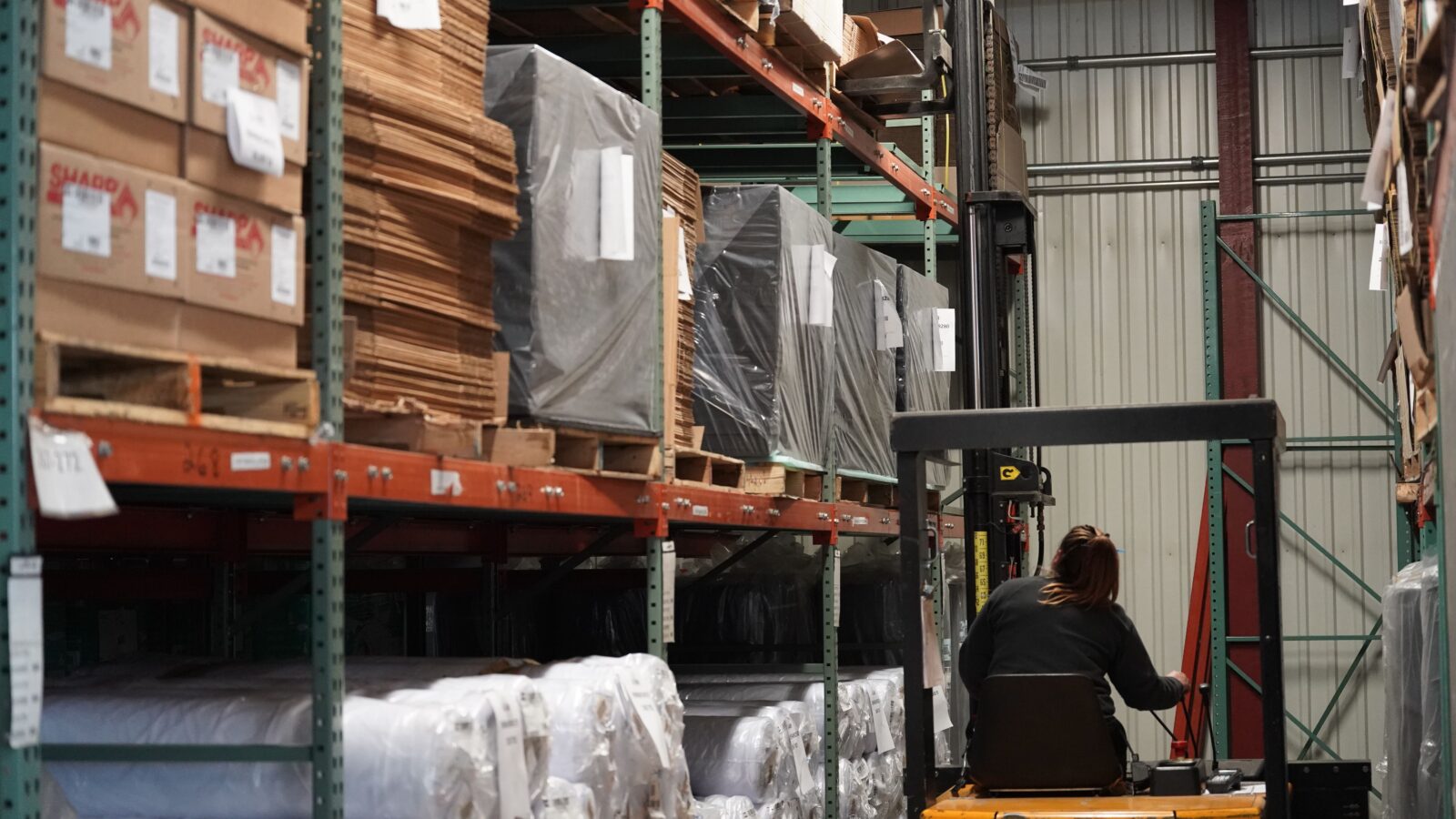
Polo Latest
Building a Strong Supply Chain
This pulls excerpts from our podcast, Inspiring Innovation: Leaders in Manufacturing featuring Jennifer Fennell. To watch our podcast episode, please visit Inspiring Innovation: Episode 4 or subscribe to our channel on your favorite podcast platform.
In today’s dynamic business landscape, building strong partnerships with suppliers is crucial for ensuring a smooth and efficient supply chain. A successful collaboration with suppliers not only helps meet customer demands but also mitigates risks and fosters innovation.
In Episode 4 of Inspiring Innovation, Sean Frost talks with Jennifer Fennell, Polo Custom Products’ Director of Supply Chain, and they discuss various aspects of supply chain today and supplier partnerships. This blog post highlights their insights and offers additional strategies to implement effective collaboration with suppliers.
Staying Ahead of Supply Chain Challenges
Supply chain is an ever-changing landscape. With potential invasions and other challenges in the world, it’s vital to mitigate risk to ensure our customers get what they need. So how do we stay ahead of whatever might be coming next?
One lesson we have learned: be ready for anything. Polo is always looking ahead at dual sourcing, which is a basic principle for supply chain, but now, rather than dual sourcing at two separate facilities, maybe one in South Carolina and one in Rhode Island, we must look at multiple continents.
We need different geopolitical locations to ensure that our customers’ needs are met regardless of what could be happening globally at any given moment. And that can be a challenge. Our customers at Polo are highly technical, often medical or fire and safety driven. Our products truly are saving lives. So creating a dual source is no easy task. It’s not a cheap task, and it’s not a quick task. We have to give priority to raw materials that are at the greatest risk and ensure that our customer has every option available to them.
4 Best Practices for Effective Collaboration
Relationship building with our suppliers leads to strong partnerships. We hold our suppliers to high standards and support them to ensure success for both parties. There are 4 strategies that have made Polo so successful in building strong partnerships with our suppliers.
1. Clear Expectations and Accountability: Setting clear expectations is essential for a successful supplier partnership. Suppliers need to understand your requirements, including delivery dates, pricing, terms and conditions, and regulatory compliance. Ambiguity should be minimized through precise communication. Automated reminders can replace frequent follow-up calls, but expectations remain the same. Accountability comes into play when a supplier fails to meet requirements. Rather than resorting to confrontation, collaboration should be emphasized. Understanding constraints and working together to find solutions can lead to successful outcomes.
2. Effective Communication: Communication plays a pivotal role in supplier partnerships. Regular and transparent communication channels should be established to keep all parties informed. Promptly addressing issues, concerns, and inquiries builds trust and prevents potential disruptions. Actively engaging with suppliers to understand their challenges and offering assistance fosters a collaborative atmosphere. Building relationships based on mutual understanding and support creates a foundation for long-term partnerships.
3. Process Optimization: Streamlining processes is crucial for efficient supply chain management. By leveraging technology and reporting mechanisms, teams can identify exceptions and address them promptly. Continuously reviewing and optimizing existing processes ensures they meet current needs and eliminate unnecessary steps. Automating manual tasks and embracing innovations can improve speed, accuracy, and overall efficiency. Empowering employees with streamlined processes enhances engagement and enables them to focus on value-added activities.
4. Regular Process Evaluation: Regular evaluation of processes is essential to adapt to evolving business needs. Assessing the effectiveness of everyday tasks, such as creating purchase orders, helps identify opportunities for improvement. Simplifying procedures, reducing complexities, and incorporating automation save time and effort for all stakeholders. Regular evaluation ensures that processes remain aligned with organizational goals, customer requirements, and industry best practices.
By implementing these best practices, we can enhance collaboration with suppliers, mitigate risks, and drive supply chain success. A culture of collaboration and relationship building, rather than confrontation, fosters a mutually beneficial environment for us and our supplier to thrive together. Embracing these strategies positions us for improved operational efficiency, customer satisfaction, and long-term success.
The Future of Supply Chain
AI is starting to change the dynamics of many industries, and supply chain is no different. As new technologies come into play, it’s important to learn how they might be leveraged for businesses.
For example, logistics carriers have taken blockchain and run with it. I can see the new software that we’re launching soon, thanks to our logistics manager, Danielle. We’ll be able to see live where all of our product is. At any given moment, we’ll have access to these dashboards that, again, give us the opportunity to see what issues may be rising to the top in the future. You’re able to predict what’s coming down the pipe and get ahead of it and give your customer options. This gives us and our customers foresight and visibility to manage risk.
If it wasn’t for those technologies and those interfaces with our system, Polo wouldn’t be able to have that same foresight to be able to get ahead of issues. But the key to success with AI is that there’s a learning curve, not just for the user, but there’s a lot of data required to get the best out of an AI software platform. We have to figure out how to best leverage it.

